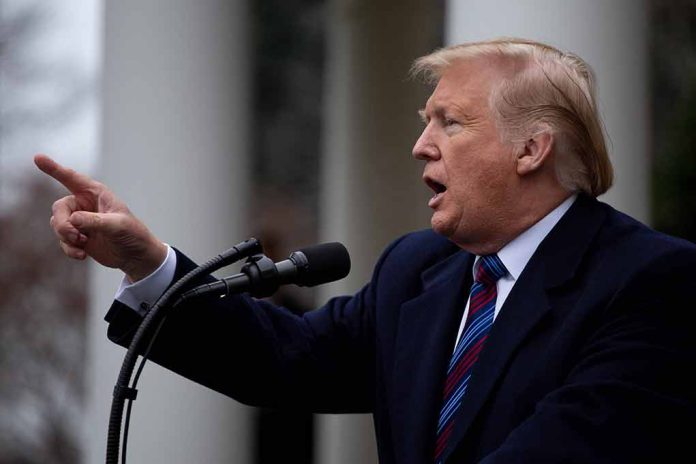
Maine Governor Janet Mills stands at the center of a political firestorm in response to President Donald Trump’s executive order on transgender athletes.
Key Takeaways
- Thousands of Mainers have signed a petition calling for the recall of Governor Janet Mills.
- President Trump challenged Gov. Mills on her compliance with an executive order that bans transgender athletes from girls’ and women’s sports.
- Gov. Mills faces potential federal funding cuts but has stated she will see Trump in court.
- The recall petition is largely symbolic, as Maine does not allow for gubernatorial recalls.
- The U.S. Department of Education has opened an investigation into Maine’s compliance with Title IX.
The Political Clash
The ongoing clash between Maine Governor Janet Mills and President Donald Trump has captivated national attention. Sparked by Trump’s executive order restricting transgender athletes in female sports categories, the discord reached a critical point when Trump questioned Mills’ adherence to the new federal directive. The refusal from Mills has prompted presidential threats to withhold federal funding, escalating tensions further.
This dispute is compounded by a petition initiated by Maine resident Melissa Moulton, demanding Mills’ recall. The petition has swiftly gained traction, garnering significant support from residents disenchanted by Mills’ stance. However, Maine’s legal framework precludes the recall of a governor via a public petition, rendering it more symbolic than actionable. Moulton, vehemently opposed to Mills’ policies, organized the “March Against Mills” event to galvanize public sentiment.
https://t.co/fHIYKX0hLi
An online petition is being circulated in the State of Maine to recall their Governor Janet Mills. Mills is opposed to President Trump's trans sports Executive Order. So far, over 22,000 signatures have been collected. The drive began earlier this week,…— ❤🎹 Ames 🎹❤ (@Ames2420) March 2, 2025
Federal-State Dynamics
Governor Mills’ assertion to uphold Maine’s anti-discrimination law in the face of federal pressure exemplifies the broader dichotomy between state sovereignty and federal authority. Mills has consistently vocalized her resistance to federal mandates that conflict with state legislation. As a predominantly Democratic state, Maine’s governmental stance reflects a larger debate on the autonomy of states in matters of civil rights.
While the Maine recall petition makes headlines, a counter-petition has emerged on change.org, voicing support for Mills. The petitions reveal the deep divide within the public discourse on transgender rights within sports, with advocates for both sides committed to their viewpoints.
Implications for Policy and Society
The confrontation between Gov. Mills and President Trump underscores significant implications for future policies. If the executive order is enforced, schools and sports programs risk losing federal assistance, thus impacting everyday Americans. This political encounter exposes the friction between personal liberties and legislative interpretations enforced by the government. As the legal battle potentially heads to court, it carries ramifications for the future of civil discourse on transgender rights and the delineation of governmental authority.
The U.S. Department of Education continues to enforce Trump’s directive, maintaining pressure on non-compliant institutions. As debates around transgender athletes continue, the outcome will likely influence similar issues nationwide, challenging and reshaping perspectives on equality, rights, and the integrity of female sports.
Sources:
- Thousands of Mainers sign petition calling for recall of Gov. Mills
- Governor Tells Donald Trump to His Face She’s Taking Him to Court – Newsweek
- Governor who feuded with Trump over trans insanity faces recall petition * WorldNetDaily * by Bob Unruh









